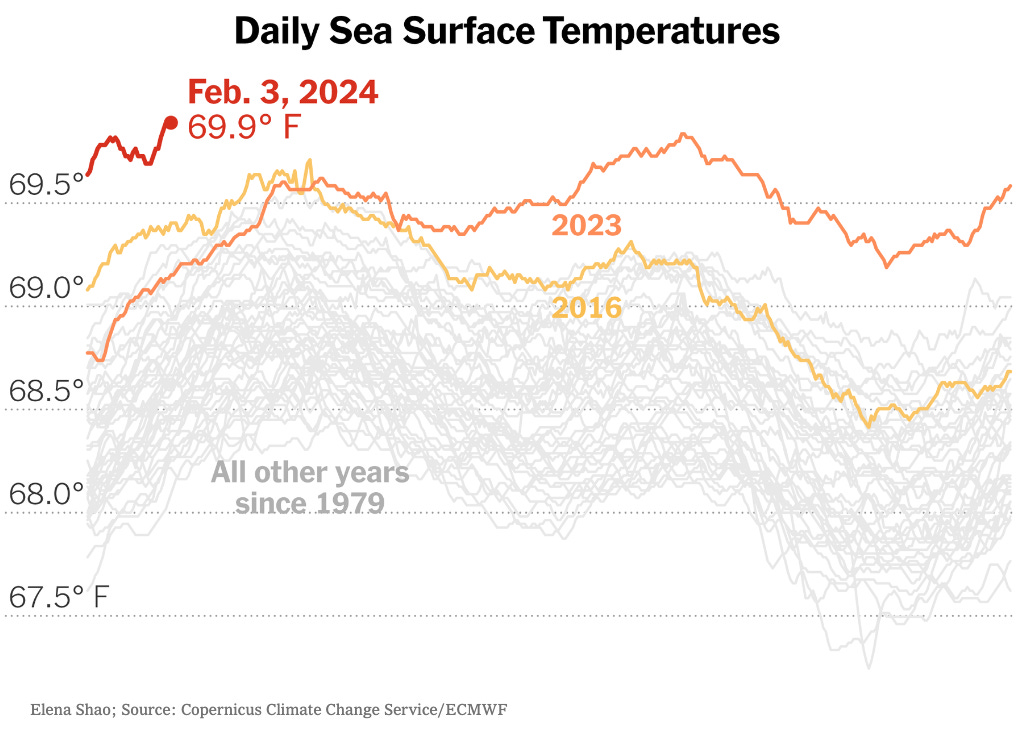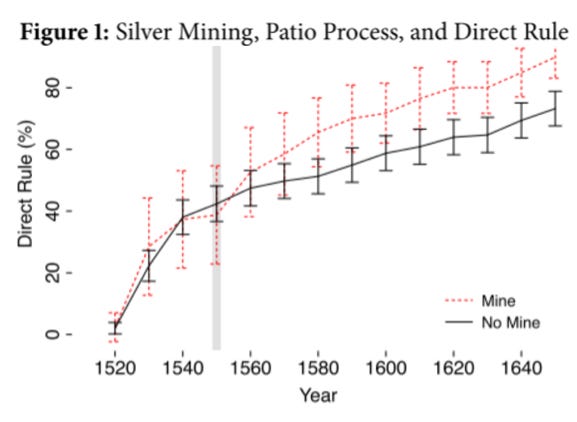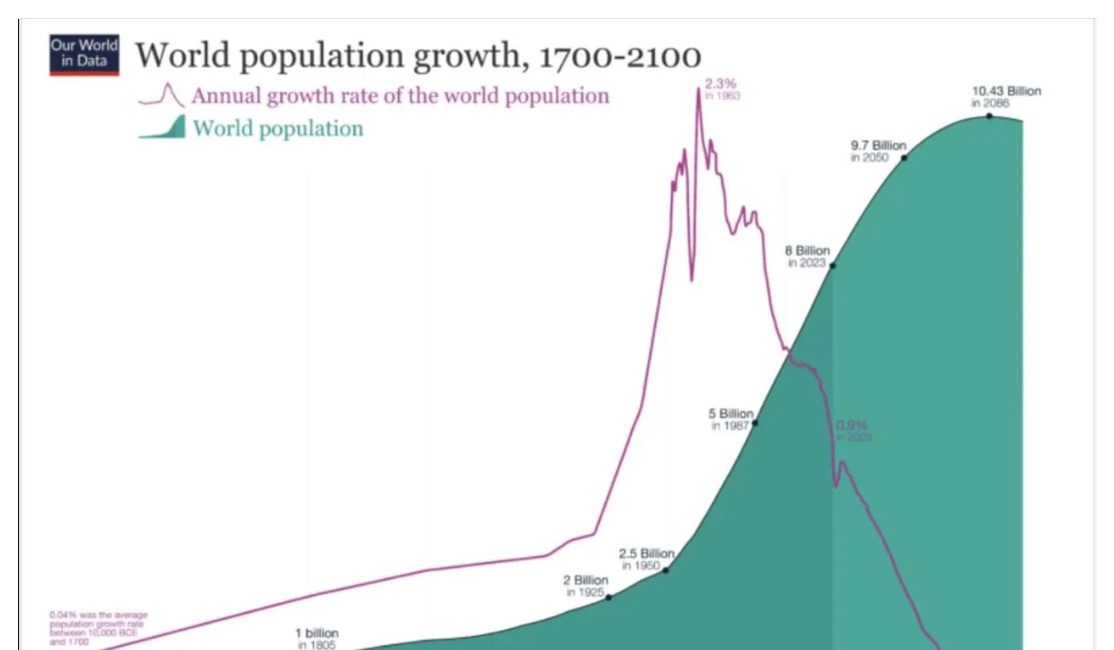BRIEFLY NOTED: For 2024-03-07 Th
Mark Levine on Elon Musk’s latest derangement; passive investing opens opportunities for active investors; Immerwahr on Drucker the management guru; statistical confounders; warming oceans; very...
Mark Levine on Elon Musk’s latest derangement; passive investing opens opportunities for active investors; Immerwahr on Drucker the management guru; statistical confounders; warming oceans; very briefly noted; & Gunpowder-Empire Fiscal Legibility & State Development: Economic History/Political Economy Seminar; Do Not Spend too Much Time "Getting Good" at Dealing with Current AML GPT LLMs; & BRIEFLY NOTED: For 2024-03-03 Su…
SubStack Notes:
Economics: I confess that the model of Elon Musk by which he chooses to do the thing that is simultaneously the funniest and the stupidest thing is looking better and better. Donald Trump has placed Musk squarely in his crosshairs: nearly every Trump speech these days has “electric cars are really stupid, and we should get rid of them” as one of its major applause lines. And Musk has responded by placing himself in the crosshairs of the left by having Twitter play lots of footsie with real fascists. And now he is both going to (a) show everyone who works for him that if he gets pissed enough he will pour out money like water to try to break his contract with you, while (b) pouring out money like water defending a federal-court suit that he is almost surely going to lose plus having to pay costs. Elon Musk seems to me to be a man who needs friends to help him figure out what he wants to do with his life, and yet does not have any:
Matt Levine: Twitter’s Executives Want Their Money: ‘Few CEOs have ever deserved their severance package more than Parag Agrawal. This is not a commentary on his performance running Twitter: That performance was, you know, bad enough that Elon Musk bought the company. But a severance package is not a reward for good performance as CEO! A severance package is a reward for getting out of the way and letting someone else take over. And few CEOs have worked harder, or had a more unpleasant time, getting out of the way. He earned his millions. But then Musk didn’t pay him, so he’s suing…. Musk fired them immediately after the takeover… and claimed it was for “cause.” The supposed “cause” was things like the executives paying lawyers to sue Musk to make him close the deal, which Musk argued was a waste of corporate resources…. Twitter’s old executives were working on behalf of its old public shareholders, and they got a good deal for those shareholders. But to do that, they had to work against its new owner, Musk, so they got him a bad deal. And the public shareholders agreed to the severance package, but Musk has to pay it. Of course he doesn’t want to!… <https://www.bloomberg.com/opinion/articles/2024-03-05/twitter-s-executives-want-their-money>
Economics: I think that the issues here are not ideally well-posed.
The question is always one of opportunities vs. arbitrage. How many opportunities—financial asset prices that are in disequilibrium and should move today away from where they were yesterday—are generated by fundamental news? How many opportunities are generated by noise trading? And how much real time and energy is devoted to good old-fashioned secureity analysis? And how much financial muscle backs up that research into fundamentals?
And bear in mind that things like Cathie Wood and ARK are absolutely mighty engines of noise trading on a gigantic scale, as is Elon Musk’s tweeting out “GAMESTONK!” Plus smart money that is engaged in any form of technical arbitrage is doing security analysis only at second-order—is spreading out noise-based mispricing rather than eliminating it. Plus dumb-beta passive investing is a mighty amplifier for noise.
Thus the more passive investment and the more technical arbitrage and the more social media-driven enthusiasts, the greater the opportunity for active-strategy security analysis. If you can do it yourself. Or if you can find someone to hire who regards you as a client rather than as a rather-naïve counterparty:
Financial Times Editorial Board: Can stock pickers fight the rise of passive investors?: ‘Active fund managers must prove their strategies are worth the cost…. With the expansion of mutual index and ETF products — covering an array of assets and geographies — shifting cash into diversified trackers is simple. Investment apps allow it to be done with the flick of a finger. For households seeking to earn more from their savings, the growth of these low-cost investment vehicles is an unalloyed good…. Seeking out star or dud stocks is a costlier, more research-intensive exercise, and necessitates a higher fee-based business model…. Some economists worry that… beyond a certain threshold…a lack of active traders engaged in weeding out over- or underpriced companies could lead to a greater misallocation of investors’ cash.… For now this is just a theoretical concern…. Hedge funds… currently outnumber Burger King outlets…<https://www.ft.com/content/32a57a60-cf6a-42a0-9d94-ce20fddbd183>
Economic History: Peter F. Drucker and the priesthood of the managerial-technocratic class as the reconcilers of the interests of all stakeholders, the administrators of things, and the coördinators of productive process in the interests of human flourishing:
Daniel Immerwahr: ‘Polanyi’s book ought to be read alongside the early work of management theorist Peter Drucker…. The Great Transformation is… complicated and… confusing…. The free market… requires treating land, labor, and money as if they were marketable commodities. But land, labor, and money are… nature, humans, and social relations, and not one of them can be fully subjected to the demands of the market without being destroyed. Thus, continues Polanyi, humans have always found ways to protect themselves and their environment—to ‘‘embed’’ the market in society…. Drucker’s The Future of Industrial Man, published two years before The Great Transformation…. “Locke’s… concept of property… [led to] the insistence of the market system that the basic factors of economic life be regarded and treated as commodities: land, labor, money…”. It is only recently that academics have begun to take Drucker seriously as a social theorist, though, and it is telling that the two scholars to have done so— Nils Gilman and Karen Linkletter—are both unusual in having experience in the business world as well as doctoral degrees in history…. Drucker pinned his hopes on the institution that he believed played the largest role in subordinating market to society: the corporation. His experience in the business world had taught him that corporations were anything but slaves to the imperatives of supply and demand and he hoped that, as social actors, they could act as responsible leaders in the new industrial age… As before, he advocated full employment, the purposive restriction of the market in some areas, the prevention of monopoly, and the conservation of the human environment as ‘‘pillars on which an economic policy for a free-enterprise society rests.’’ But given such restrictions—and Drucker was willing to allow that they were substantial—he believed that profit-seeking corporations could function as the leading institutions of a modern society, and that society would be better off for it. Behind Drucker’s change of heart about the market lay his skepticism about the state… <faculty.wcas.northwestern.edu/daniel-im…>
ONE VIDEO: Christian: Very Normal: Confounders:
ONE IMAGE: Global Oceans, Warming:
Very Briefly Noted:
Journamalism: Oliver Willis: The Media Wants Liberals To Shut Up And Take It. Don't: ‘Check out this comment from NY Times publisher A.G. Sulzberger…. “There are a disproportionate number of conservative voters who will not trust any news source that says that Joe Biden was the rightful winner of the 2020 presidential election, and we can’t try to win those folks over and hedge our language. We are just stating the truth fully and plainly, but we are also doing that in a way that is unemotional. We are not anyone’s opposition and we’re not anyone’s lap dog. We are going to continue to report fully and fairly, not just on Donald Trump but also on President Joe Biden. He is a historically unpopular incumbent and the oldest man to ever hold this office. We’ve reported on both of those realities extensively, and the White House has been extremely upset about it…” In no universe is Trump’s authoritarian and fake claim that he won the 2020 election anywhere on par with legitimate concerns about Biden’s age. The only way you could make those two world views two sides of the same coin would be if liberals insisted that Biden is only 50 years old despite the clear evidence to the contrary. But the Sulzbergers of the world are letting liberals know that they should just shut up and take it…. This should be a bat signal-style sign to liberals to pour on the pressure, don’t relent…. [There is an] absolutely naïve notion that the mainstream press shares our values and our worries about Trump and the radical right, but that the media just keeps making honest mistakes in their coverage. Balderdash. They know exactly what they are doing. They like it. They love it…
Lucian Truscott: There is something wrong at the New York Times: ‘At a rally on Saturday night in Virginia, Trump confused former president Obama… with President Biden for the third time over the last six months. “Putin has so little respect for Obama that he’s starting to throw around the nuclear word,” Trump said, as his crowd of rabid supporters suddenly fell silent…. You won’t find that verbal stumble and the crowd’s stunned reaction in the Times coverage of the campaign over the weekend. You’ll have to subscribe to the online version of The Guardian if you want to learn how Trump is losing his way mid-sentence at rallies and just mumbling incoherently…
Economics: Martin Sandbu: Understanding America’s productivity boom: ‘How the US soared ahead of Europe…. In the four years from the end of 2019, real output per hour worked in the US non-farm business sector rose 6.4 per cent…. Manufacturing has been no success story in the post-pandemic recovery…. At a broad sector level… [no] productivity-enhancing reallocation…. [On] reallocation between companies in the same sector (and between subsectors), so the jury is still out…. The biggest productivity jumps took place in information services (media, telecoms, data processing) and professional services, where real value added per worker leapt by 30 and 15 per cent respectively…. The productivity surge happened above all in knowledge-intensive industries: professional and business services, education and health, and information services <https://www.ft.com/content/3a9fb9c7-84e8-43ca-8770-839430cbaebd>
Economic History: William Hogeland: Support for The Hamilton Scheme: An Epic Tale of Money & Power & the American Founding: ‘“William Hogeland is the best guide I have found to understanding how we today are, for good and evil, children of Alexander.” —J. Bradford DeLong…. “A bold and creative new narrative of Alexander Hamilton’s role in the American founding that brings lesser known but vital players into view.”—Annette Gordon-Reed…. “I've always loved William Hogeland's writing, especially the confidence and verve with which he knocks down others' stupid sentimentalities in favor of a smart sentimentality that's actually worth holding onto: that American can truly be democratic. This book reveals a knockdown, drag-out, and often violent class war that hid in plain sight over what kind of economy America should have. It makes for as riveting a story as any hip-hop Broadway musical. And it's far more accurate to boot.”—Rick Perlstein…. “Alexander Hamilton’s plans to consolidate wealth in an investor class were once as hotly debated as anything in American history. It took a lot of forgetting to make him a hero of the people. We’re in William Hogeland’s debt for getting the story straight and for telling it so engagingly, as it needs to be told, from the top down and from the bottom up.”—David Waldstreicher… <https://us.macmillan.com/books/9780374167837/thehamiltonscheme>
Francisco Garfias & Emily Sellars: Fiscal Legibility and State Development: Theory and Evidence from Colonial Mexico: ‘The ability of central authorities to observe local economic conditions… shapes political centralization and state development. When rulers lack information… they… cede autonomy to… intermediaries…. As information quality improves, rulers are better able to monitor and sanction…. Centralization encourages additional investment… leading to long-term divergence in state development. We study… colonial Mexico: the… patio process to refine silver…. Political centralization differentially accelerated in affected districts… [which] saw disproportionate state investment in informational capacity, and… were more resilient to institutional decline over a century later… <https://economics.harvard.edu/sites/hwpi.harvard.edu/files/econ/files/emily_sellars_-_yale_0.pdf?m=1677859827>
Karl Kautsky (1918): The Dictatorship of the Proletariat: ‘Socialist… production… [is] the goal… because in the technical and economic conditions which prevail today Socialstic production appears to be the sole means of attaining our object. Should… the emancipation of the proletariat and of mankind… [be best] achiev[able] solely on the basis of private property, or… most easily realised in the manner indicated by Proudhon… we would throw Socialism overboard…. Socialism as a means to the emancipation of the proletariat, without democracy, is unthinkable…. Not the uselessness of democracy for the proletariat is demonstrated by anticipated attempts of the ruling classes to destroy democracy, but rather the necessity for the proletariat to defend democracy with tooth and nail. Of course, if the proletariat is told that democracy is a useless ornament, the needful strength for its defence will not be created… <https://archive.org/details/cu31924028351439/page/n8/mode/1up?view=theater>
Neofascism: Kent: ‘The angry, isolated people that I have met are too apathetic to vote (I live in Appalachia). They may rant and rave if someone gives them an ear, but they don't show up to vote. The voting proto-fascists I know are above average income and are not socially isolated. They tend to be the petite bourgeoisie. They have disdain for the poor, angry, and isolated - whom they consider lazy moochers. Also, fascist leaders aren't banal. They radiate hate… <https://braddelong.substack.com/p/hoisted-from-the-archives-origins/comment/49953414?r=d0vhttps://braddelong.substack.com/p/hoisted-from-the-archives-origins/comment/49953414?r=d0v>
A.B. Stoddard: Hunter Biden’s Surprisingly Good Hardball: ‘For all his flaws and failings, the first son has battled GOP lies effectively…. Last week Republicans finally deposed Hunter…. The Oversight Committee chairman, Rep. James Comer, left early after not asking Hunter a single question. Rep. Andy Biggs warned before the transcript was released that it would make Hunter look good because “they did a great job prepping”…
Public Reason: Jim Hightower: Jim Hightower’s Radio Lowdown… <https://jimhightower.com/>
Central Country: Patrick Wu: It pains me to say Hong Kong is NOT over: ‘This new problem… the National Security Law… not… the NSL itself [but]... the interpretation of the NSL… Will it be abused by “the power that be” to cover a wider range of minor infringements?… We need to be vigilant. Any misstep in this direction will destroy whatever little confidence that’s left there. An even more worrying sign is the self-castration of Hong Kong’s political elite…. If we Hong Kongers are not serious about ourselves, nobody will be there to save us. Nobody will respect us. It appears that we run the risk of overdoing it, voluntarily losing our unique edges and thus becoming the cause of our own enslavement…












Karl wasn’t all wrong back then. To fast forward its almost heartbraking what became of the party today he helped to found, the SPD
I sometimes think that Alexander Hamilton was the most overrated figure in American history. It's not that he wasn't the smartest guy in the salon--he was. But his mind was one of wheels and gears. He never understood that a patroon class could not coexist with economic dynamism, or at least not for long. Jefferson understood better, although he made the wrong choice. And Franklin, perhaps, both chose rightly and for the right reasons.